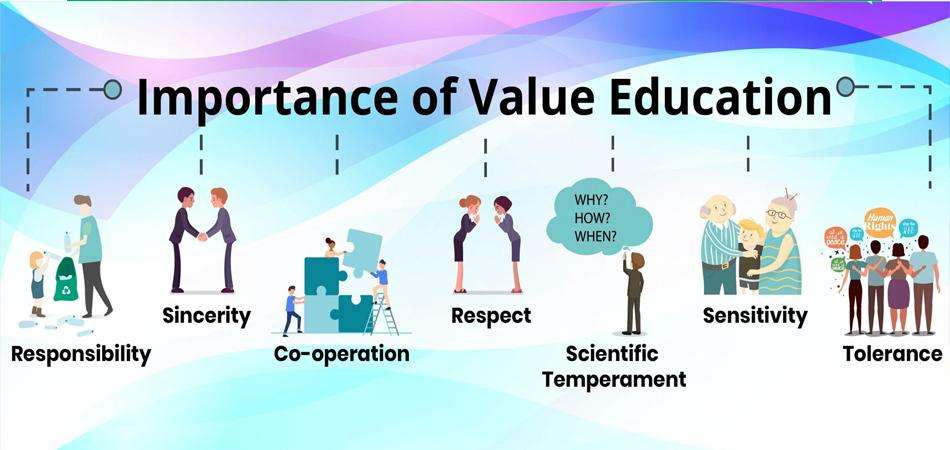In today’s increasingly interconnected world, Volunteering Opportunities for Students are more than just extracurricular activities—they are essential platforms for holistic growth, empathy, and real-world exposure. These opportunities equip students with life skills, leadership qualities, and a deep understanding of civic responsibility. At a time when academic excellence alone is no longer sufficient, volunteering adds depth to student experiences, making them socially aware and emotionally intelligent individuals.
By participating in Volunteering Opportunities for Students, young learners not only contribute to society but also gain insights into teamwork, communication, and problem-solving. These experiences can range from teaching underprivileged children and participating in environmental drives to working with NGOs and assisting in community healthcare programs. The benefits of volunteering go beyond a well-rounded résumé—it builds character, compassion, and confidence.
The Educational Value of Volunteering
When integrated into academic frameworks, Volunteering Opportunities for Students become an extension of the classroom. They encourage experiential learning by enabling students to engage directly with the issues they study. For instance, a student learning about environmental science can participate in a tree plantation drive, connecting theory with action.
These experiences foster a sense of ownership and initiative. They encourage students to think critically, make informed decisions, and reflect on their roles in shaping society. Volunteering also cultivates empathy—a core trait that underpins responsible citizenship and meaningful leadership.
Types of Volunteering Opportunities for Students
There is no one-size-fits-all approach to volunteering. Volunteering Opportunities for Students come in a variety of formats, allowing students to explore their interests and apply their strengths:
-
Environmental Conservation: Tree planting, clean-up drives, waste management initiatives.
-
Education and Literacy: Tutoring underprivileged children, and conducting book donation campaigns.
-
Healthcare Support: Assisting in awareness campaigns or first-aid initiatives.
-
Animal Welfare: Volunteering at shelters or organizing adoption drives.
-
Community Development: Helping in disaster relief, food distribution, or rural development projects.
Each of these avenues teaches practical skills while instilling compassion and social responsibility in students.

Volunteering as a Tool for Value Education
A critical yet often overlooked benefit of Volunteering Opportunities for Students is their role in delivering Value Education. By participating in volunteer programs, students experience values like kindness, humility, responsibility, and inclusivity in real-life contexts. These are not just abstract ideas but lived experiences that mold their personal and ethical frameworks.
For instance, volunteering with differently-abled individuals fosters patience and understanding, while working in old-age homes teaches respect and gratitude. These lessons are invaluable in today’s competitive world where emotional intelligence is as important as academic prowess.
Boosting Interactive Learning Through Volunteering
Volunteering Opportunities for Students also promote Interactive Learning. Unlike traditional classroom settings that often rely on passive instruction, volunteering engages students in active, hands-on tasks. This approach enhances comprehension and retention while encouraging students to ask questions, explore solutions, and collaborate with peers.
A student involved in a recycling awareness campaign, for example, gains practical knowledge about environmental science, communication strategies, and community engagement—all while learning outside the confines of textbooks. This blend of action and reflection creates deeper, more lasting learning experiences.
The Role of Schools in Facilitating Volunteering
Schools play a pivotal role in identifying and organizing Volunteering Opportunities for Students. Institutions that prioritize service-based learning often see improved student engagement, stronger community ties, and a more compassionate school culture. To successfully integrate volunteering into school life, institutions can:
-
Partner with NGOs and community organizations.
-
Include service learning in the curriculum.
-
Offer credits or awards for participation.
-
Conduct awareness sessions about the importance of volunteering.
-
Encourage reflection through presentations or reports post-volunteering.
By formalizing these efforts, schools empower students to take initiative and view volunteering as an integral part of their educational journey.
Developing Leadership and Soft Skills
Volunteering often places students in roles that require leadership, problem-solving, and effective communication—skills that are vital for future success. Through Volunteering Opportunities for Students, young individuals learn how to manage time, work in diverse teams, resolve conflicts and adapt to unexpected challenges.
These skills complement academic achievements and are highly valued in both higher education and the job market. Colleges and employers increasingly look for candidates who show initiative, resilience, and a commitment to community welfare—traits that are cultivated through consistent volunteer work.
Overcoming Challenges in Student Volunteering
While the benefits are substantial, organizing and maintaining Volunteering Opportunities for Students can present challenges. Common obstacles include lack of time, limited access to volunteering networks, and low motivation. These can be mitigated by:
-
Incorporating volunteering into school schedules.
-
Providing logistical support and guidance.
-
Highlighting student success stories to inspire peers.
-
Using digital platforms to find and manage opportunities.
With the right structure, even short-term volunteer experiences can yield long-term personal growth.

Making Volunteering a Lifelong Habit
The ultimate aim of encouraging Volunteering Opportunities for Students is to nurture a lifelong habit of service and social engagement. When introduced early, volunteering becomes a natural part of a student’s identity, influencing their future decisions, values, and relationships.
Many students who begin volunteering in school go on to lead non-profits, start community initiatives, or advocate for policy changes—proving that these small beginnings can lead to impactful change.
Conclusion: Enriching Education Through Action
Incorporating Volunteering Opportunities for Students into the academic framework enhances education by grounding it in real-world relevance, social engagement, and character development. It transforms students from passive learners into active contributors who understand the value of empathy, service, and leadership.
At Verified Campus, we believe in promoting institutions that recognize the importance of hands-on experiences in shaping well-rounded individuals. Many schools in Dehradun exemplify this approach by embedding volunteering into their curriculum, ensuring that education is not just about grades—but about values and impact.


